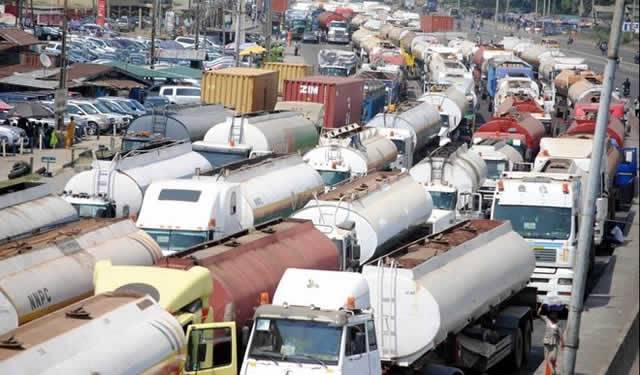Traffic gridlock: Commuters abandon Mile 2-Badagry expressway for ferry
Commuters using the Badagry-Mile 2 expressway to reach their destinations in the Lagos metropolis have now opted for water transportation, no thanks to the traffic logjam that has become a nightmare on the road. Mostly affected are residents in the Okokomaiko, Agbara and Badagry communities whose only access to their offices and business centres in […]

Commuters using the Badagry-Mile 2 expressway to reach their destinations in the Lagos metropolis have now opted for water transportation, no thanks to the traffic logjam that has become a nightmare on the road.
Mostly affected are residents in the Okokomaiko, Agbara and Badagry communities whose only access to their offices and business centres in areas like Apapa, Lagos Island, Victoria Island and Lekki is the Badagry-Mile 2 expressway.
The Lagos State government had long awarded a contract to expand the expressway from Mile 2 to Okokomaiko. Many houses had been pulled down on the stretch to make way for the expansion, while the contractor, CCECC, also began work on the project.
But the work has since stopped at the Alakija end of the expressway, while the excavated portions have degenerated virtually into gullies as the rains intensified in recent times.
Consequently, the expressway has become almost unmotorable between the Okokomaiko and Abule-Ado axis. A journey that normally took motorists and commuters less than two hours to complete now takes up to three hours as vehicles compete with commercial motorcyclists to navigate the bad portions.
Our correspondent observed that at the Ojo Military Cantonment, a big gully filled with rainwater has rendered the road almost impassable as commercial motorcycle operators struggle with cars and trucks on the one lane left for movement.
To compound the situation, road users are forced to wait endlessly any time soldiers are doing their route march.
Commercial bus operators have taken advantage of the situation to hike fares. The normal fare from Mile 2 to Okokomaiko is N150. But with the traffic snarl now, commuters are being made to pay between N300 and N400 for the same distance.
Many commuters have jettison the road as they lose valuable time sitting in the hold-up to get to their destinations. So they have found an alternative in fibre plastic 18-seater boats.
A Customs clearing agent who resides in Ijanikin and works in Apapa, Subaru Abdul, said, “Now that I have discovered the ferry service at the Agbara jetty, it has reduced my burden, though the jouney is usually risky. It takes me about 45 minutes from Agbara to get to Liverpool in Apapa. The road logjam lasts for over five hours, though it is cheaper to go by road, it would be at the risk of losing one’s job.”
Another commuter, Gbenga Sonayan, said, “Since I discovered the ferry alternative, I now find it easy to go to work in Apapa. The only thing is that one must be conscious of time. Ferry service from Agbara to Apapa commences at 7am and ends at 7pm. Once you miss it around 5.30pm at Liverpool or Tin Can when you are going back home, the only option left for you is the road confusion.”
But there is the fear which many new users of the water transportation are yet to overcome. The Public Relations Officer of the National Emergency Management Agency (NEMA) in the South West, Ibrahim Farinloye, admitting the journey could be prone to disaster, explained, “Most of the life jackets used by boat operators are either expired or are fake. At times, operators carry more passengers than what is approved by the management of the National Inland Waterways Authority (NIWA) or the Lagos State Inland Waterways Authority (LASWA).
“Navigation is also worsened by the activities of dredgers who lay their dredging pipes indiscriminately without mounting any warning signs. Boats capsize the moment they run over submerged pipes.
“Also, fishing nets abandoned by local fishermen cause navigational hazards. Regulators can do more if they enforce all navigational laws.”
A member of the Road Transport Employers Association of Nigeria (RTEAN), Taiwo Jenadu, said that drivers plying the Mile 2-Okokomaiko route were no longer meeting up with their daily targets
In response to complaints about the road, the Lagos State government has disclosed plans to hasten repair works on it. The Special Adviser to the Governor on Lagos State Public Works/Drainages, Engineer Temidayo Erinle, said, “We are working on the road presently to repair every failed portion. At Iyana-Era, Iyana-Isashi and after Agbara junction, our men are on the road working to ensure residents have easy movement.
“On the Lagos-Badagry expressway, we have not stopped rendering our services, especially from the Okokomaiko end of the road to Badagry. You will recall that the road was previously conceived as rural roads, but the state government, through the Corporation, has not left the road to dilapidate even as we plan to embark on a public-private partnership for its expansion.”
